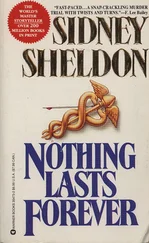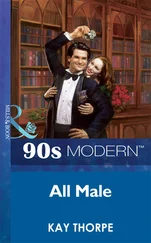Briefly, Leland looked over the edge of the roof again, making sure of his calculations. The hose was made of heavy canvas, and he had looped the hose around the brass fittings so that nothing could slip or come loose; but he still could not think about what he was going to do, the act of it, swinging out over the street secured by a rig he had made himself.
He had no choice any more. The police had seen to that, and now a lot of them were going to die. While he swung out four hundred feet above the street. He wanted to think of anything else. The first helicopter began to come around, sinking, dropping its nose. Sunshine flared along the top of the elevator tower, far too high to light the roof itself. Leland hoped his own timing would be more precise.
The second helicopter began its descent, the first still three or four miles from target. Leland could hear the whomping of their engines. He squirmed closer to the edge, where he could hear the crowd in the street starting to yell. He was still hidden from below by the lights of the KLAXON sign. When he rolled over, he would have to hold on to the machine gun and the hose together — if he let go of the hose, the shock of his weight might cause the web of kit straps to slip over his shoulders. He would go straight down. Less than four seconds.
It wasn't going to work!
The sunlight was racing down the elevator tower. Leland dared not look the other way, lest the sun itself momentarily blind him. The door from the stairwell moved. If the gang had been listening to him, they expected him to start shooting at once — unless they figured that everything he had been saying had been some kind of trick. He hoped that they continued to have that much respect for him. He had taken that extra five degrees of arc, with the sun above the mountains behind him, shining into the eyes of his adversaries.
The first helicopter was less than a mile away, and the stairwell door, full of the holes Leland had put in it last night, moved again, as if the people on the other side wanted to test its weight. They were watching the approach of the helicopter through the holes, and from more than an eighth of a mile, those holes were invisible. Leland trained the Czech assault rifle on the door, waist high. He was going to wait until the last possible moment. The organ on the radio stopped and a male voice in a great hall somewhere invited everybody to rise for the Apostles' Creed.
The door came open six inches and a gun barrel protruded, firing in Leland's direction, over his head. Leland fired two short bursts — he had to save his ammunition, in case he couldn't load the other clip. The next burst hit the wall below him, five feet away from his toes.
The elevator tower spewed dust as the first rounds from the helicopter struck it. The helicopter was coming in quickly now, and Leland could see the men inside. He squeezed off another short burst at the door before the helicopter roared overhead; then, as it went by, he leaned over the edge of the roof and took careful aim with the assault rifle toward the window he had marked out in his mind. In the shadow that remained, he could not see what he had done.
The second helicopter was making its run, and this time the door opened wider momentarily as the terrorists returned its fire. As Leland got his own gun around to provide cover, he could see the tube of a missile launcher. More automatic fire was directed at him, but they could not take the time to fix exactly where he was. As long as he was on the roof, they could not set up for a clear shot at the helicopters. But he was going to run out of ammunition or have to change clips or get nailed, and that would be the end of his support.
Rounds from the second helicopter tore aluminum ductwork up from the roof and blasted it out over Wilshire Boulevard. The third helicopter was right behind, lower, shooting out the sign on the south side of the building. The first was just turning into its second pass, flying a much tighter arc, and much more slowly. Leland fired again at the open door.
He counted two of them inside. If the police were coming from below, too, then only one of the gang would be guarding the hostages. That was getting too far ahead. He got off another short burst as the helicopter began its run. The terrorists turned from him, and he leaned over the edge of the roof to empty the clip at the window. It was beginning to turn white, the cracks spreading almost the way foam hisses up a beach.
The terrorist shot at him again, the rounds whanging off the frame of the sign. Leland had to wait until the second helicopter came in before he tried to change clips. More rounds whined over his head. The second helicopter started firing, and Leland lunged for the new clip, throwing the old over the side — a mistake, for he saw it grow small, then disappear into the darkness far below. He wanted to vomit.
There was shooting in the street. Leland fired at the elevator tower. He had to save ammunition. He could not stop thinking about the fall. The hose had no tension at all. In the fighting, he had squirmed the wrong way. Now the door was flung open wide, automatic fire poured up at the helicopter, followed by a great, roaring whoosh and a column of white smoke as thin and stiff as a flagpole. The helicopter exploded in a ball of flame that turned the roof cherry red. One of the terrorists scrambled out onto the roof. Leland fired at him. It was too late; if he could save himself, this was the only way, and he had to do it now.
Wrapping his arms around the rifle, his fingers clawing into the hose, Leland rolled off the roof.
He screamed. He did not want to open his eyes. The slack was taken up almost at once, and he was swinging and spinning downward and then up again. As he opened his eyes there was another explosion, worse than the first, and flames shot out in all directions that seemed like only a few score feet above him.
The spinning carried him away from the building, then back toward it again. He could see the street spinning beneath his feet. The window glass was beginning to break away. He grabbed at the frame with his left hand, bits of glass cutting to his palm, but his own motion wrenched him loose again. If he didn't gain a purchase now, he would swing back and forth in an ever-decreasing arc, until he was level with the thirty-ninth floor, five feet out from the building.
He let go of the hose and the assault rifle and lunged backward with his right hand, then his left, so that he was hanging by his hands, facing the street. The rifle teetered on the edge of the floor, directly beneath his feet. To free himself of the hose, he had to pull himself up with one hand and unravel his belt with the other. Even if he could do that cleanly, which he doubted, and was able to drop straight down, if he landed on the assault rifle the wrong way, the result would be the same as stepping on a banana peel.
The weight of the hose was pulling him out into the street, and he wasn't sure he had the strength in either arm to resist it while he worked on the belt. It was as if he were being drawn to his death. He cried — he wailed, out of control, his eyes shut tight again. His left arm shook as he clawed at the belt. He could feel it coming loose, but not fast enough.
His fingernails ripped at the buckle. Paratroopers clawed through their clothing when their chutes didn't open. The hose began to fall away. Leland pushed at it, trying to twist against the thin air to get deeper into the room. He was screaming again, his fear and rage filling him completely, with the heat of an orgasm. His wrist felt like it was breaking, and then he lost his grip.
He landed on his spine on the assault rifle, his hands and forearms pushing back against the window frame as his legs and hips fell out of the window. The breath was knocked out of him; the only consciousness he knew was his terror. He was shrieking at the top of his lungs. His hand landed on the rifle and he almost pushed it out from under him. He rolled onto his belly and crawled into the room, sobbing.
Читать дальше











